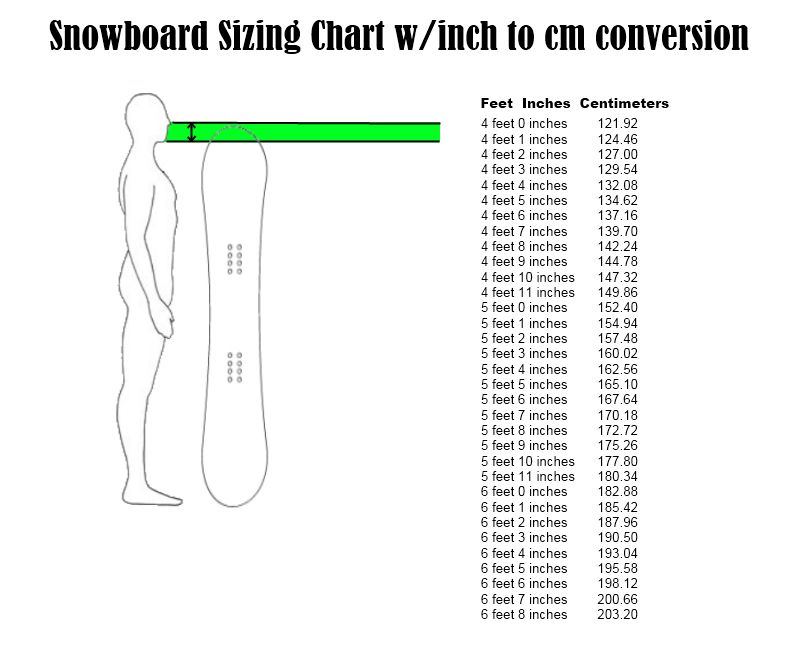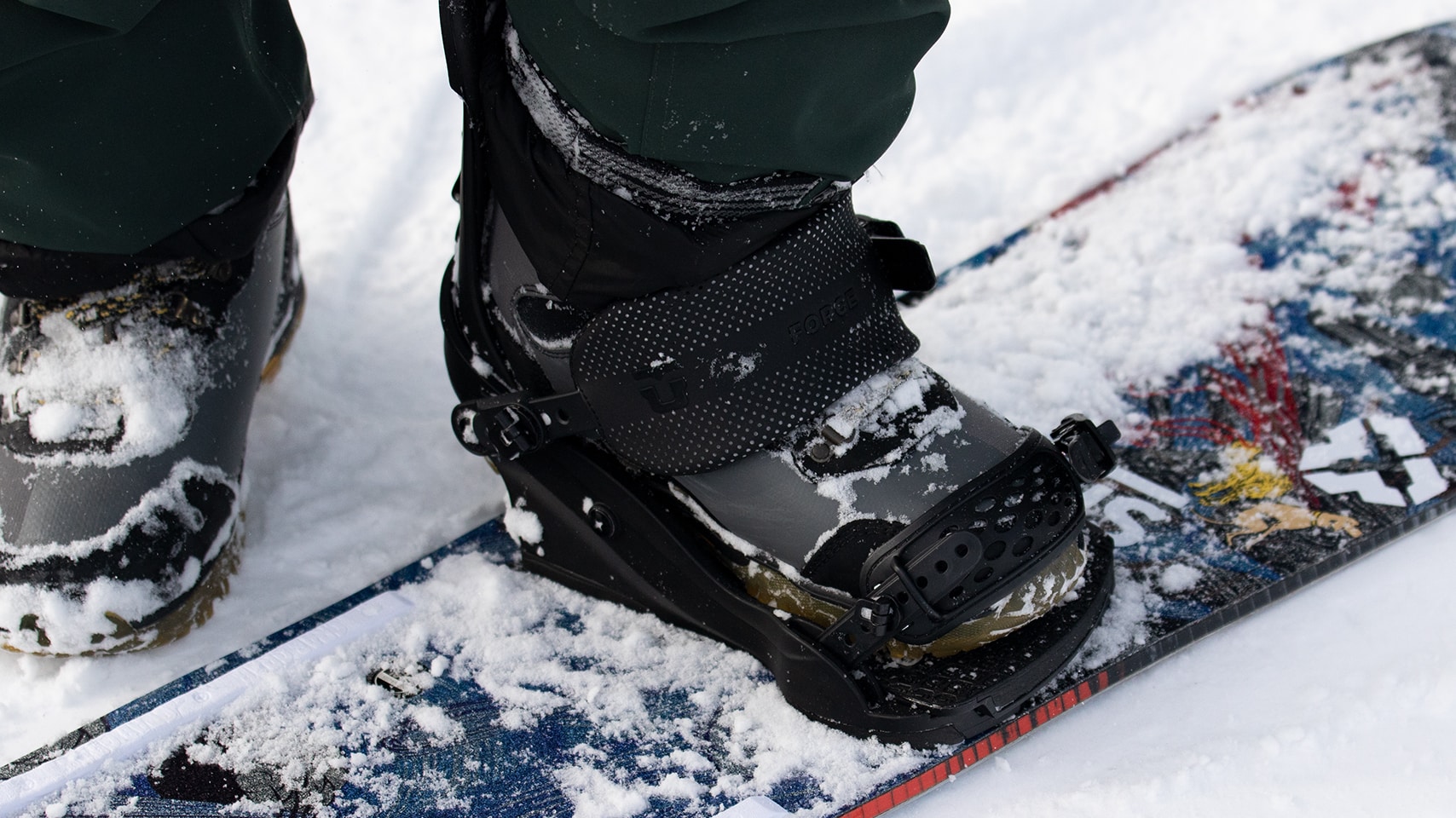Snowboard Sizing Secrets: Find Your Perfect Ride
Ever stood in a snowboard shop, overwhelmed by a wall of boards, wondering which one is destined to be your trusty steed? The quest for the perfect snowboard length is a rite of passage for every rider. Choosing the right size can make or break your experience on the mountain. Too long, and you'll be wrestling a behemoth. Too short, and you'll feel like you're riding a runaway skateboard. Fear not, intrepid shredder, this guide will illuminate the path to finding your ideal snowboard length.
The ideal snowboard length isn't a one-size-fits-all equation. It's a confluence of factors, a delicate dance between your physical attributes, riding style, and experience level. Think of it as a personalized recipe for shredding success. We'll break down the key ingredients, from height and weight to the terrain you crave, to help you cook up the perfect board.
Historically, snowboard length was primarily determined by standing the board on end and checking if it reached your chin. While this method offers a rudimentary starting point, it's a bit like navigating with a paper map in the age of GPS. Modern snowboard design and riding styles have evolved, demanding a more nuanced approach to sizing.
The importance of correct snowboard sizing cannot be overstated. A properly sized board translates to better control, improved balance, and ultimately, more fun on the slopes. The wrong size can lead to frustration, decreased performance, and even increased risk of injury. Imagine trying to carve graceful turns on a board that's too long, or struggling to maintain stability on a board that's too short. It's like trying to dance in shoes two sizes too big – not exactly a recipe for smooth moves.
One of the main issues surrounding snowboard sizing is the sheer volume of (often conflicting) information available. From old-school chin-to-nose methods to complex online calculators, the process can feel overwhelming. This guide aims to cut through the noise and provide a clear, concise roadmap to finding your perfect match.
As a general guideline, your snowboard should reach somewhere between your chin and nose when stood on end. However, this is merely a starting point. Factors such as weight, riding style (freestyle, freeride, all-mountain), and skill level play a significant role in fine-tuning the ideal length. For example, a heavier rider might prefer a slightly longer board for added stability, while a lighter rider might opt for a shorter, more maneuverable option. Freestyle riders often choose shorter boards for enhanced trickability, while freeriders may prefer longer boards for stability at higher speeds and in variable snow conditions. Beginners generally benefit from shorter, more forgiving boards.
Advantages and Disadvantages of Different Snowboard Lengths
| Length | Advantages | Disadvantages |
|---|---|---|
| Shorter | Easier to maneuver, better for tricks, ideal for beginners and park riding | Less stable at high speeds, less float in powder |
| Longer | More stable at high speeds, better float in powder, ideal for experienced riders and freeriding | Less maneuverable, harder to learn on |
Best Practices for Determining Snowboard Length:
1. Consider your weight: Heavier riders need longer boards for stability.
2. Think about your riding style: Freestyle riders prefer shorter boards, freeriders prefer longer boards.
3. Factor in your skill level: Beginners benefit from shorter, more forgiving boards.
4. Use a snowboard size chart: Many manufacturers provide charts that recommend board lengths based on height, weight, and riding style.
5. Consult with a snowboard shop expert: They can help you find the perfect board based on your individual needs.
FAQs:
1. Q: How long should my snowboard be for beginners? A: Generally, a shorter board that reaches between your chin and collarbone is recommended for beginners.
2. Q: Does weight affect snowboard length? A: Yes, heavier riders generally require longer boards.
3. Q: What size snowboard should I get for freestyle? A: Freestyle riders typically prefer shorter, more maneuverable boards.
4. Q: How long should a snowboard be for powder? A: Longer boards provide better float in powder.
5. Q: Can I use a snowboard that's too long or too short? A: While possible, it will negatively impact your performance and enjoyment.
6. Q: Are there different snowboard sizes for men and women? A: Some brands offer women-specific boards that are often lighter and more flexible.
7. Q: Where can I find a snowboard size chart? A: Most snowboard manufacturers provide size charts on their websites.
8. Q: Should I demo a snowboard before buying it? A: Demoing a board is highly recommended to ensure it's the right fit for you.
Choosing the right snowboard length is crucial for maximizing your on-snow experience. By considering your individual needs and following the guidelines outlined in this guide, you can confidently select a board that will unlock your full shredding potential. From mastering your first turns to conquering challenging terrain, the perfect snowboard will be your trusty companion on countless mountain adventures. Remember, the right board isn't just about length; it's about finding the perfect harmony between you and your ride, allowing you to express your unique style and embrace the thrill of snowboarding. So, head to your local shop, get expert advice, and embark on your journey to finding the perfect board – the mountain awaits!
Channeling the zeitgeist what did people wear in the 90s
Ohio maine coon cattery finding your purrfect gentle giant
Unleash your inner artist free dd character image generators














